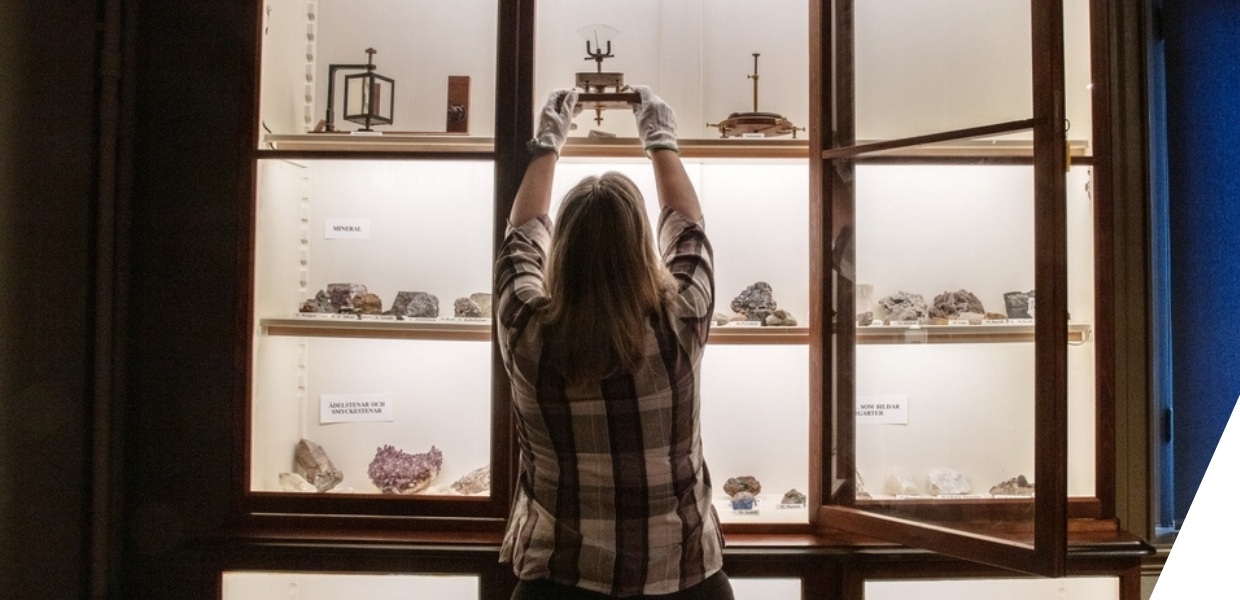The Europeana Research Grants Programme provides financial support for the organisation of events which engage scholars and cultural heritage professionals to reflect on a given theme. Their work results, for example, in reports, white papers and video interviews for the benefit of museums, libraries and archives in the process of their digital transformation. The 2021 call focused on crowdsourcing and research.
Overall, the proposals we received offered an enlightening overview of the variety of approaches to crowdsourcing alongside digital practices in Europe from the perspective of universities (46% of the proposals), cultural heritage institutions (24%) and research institutions (16%). We were delighted to award the Museum für Naturkunde Berlin, Estonian War Museum - General Laidoner Museum and the University of Warsaw a research grant.
In the first half of 2022, Europeana Research will work in collaboration with these institutions to explore the value and reusability of data generated or enriched through crowdsourcing (also known as ‘crowdscience’), looking specifically at how this can then be used in research contexts.
Additionally, Europeana Research awarded two special prizes which will support the creation of video tutorials designed to complement Digital Humanities courses in Higher Education. They will invite university students to experiment with digital resources, practices and tools. Find out more about these events and video tutorials below.
The winning projects
Museum für Naturkunde Berlin, Germany: Anthropocenic objects. Collection practices for the ‘age of humankind’
Project Leader: Dr. Elisabeth Heyne in collaboration with Ulrike Sturm und Elisa Herrmann
This proposal stems from theoretical discussions and practical work sessions on data from a current transdisciplinary European project at the natural history museums in Berlin and Paris (‘Towards the collection of the Anthropocene’). Three workshops (digital and in person) will feature experts working on archives and cultural heritage collections, scholars focusing on the Anthropocene, and professionals working on digital and participatory practices. The workshops will address questions including: ‘what is an anthropocenic object?’ ‘How can it be collected and who collects (and owns) it?’ ‘How can it be stored and saved?’ ‘How could future collection practices and archives of the Anthropocene look like?’ while exploring the challenges of transdisciplinary, digital and participatory work with ‘anthropocenic objects’, both as natural and cultural heritage.
Estonian War Museum - General Laidoner Museum: Crowdsourcing for military heritage in Estonia
Project leader: Dr Mari-Leen Tammela
It is now easier than ever for individuals to contribute collectively through different web-based solutions, if such opportunities are provided. However museums are often cautious about starting crowdsourcing projects as they may not be familiar with how to run them, or be concerned that the ‘crowd’ does not have the appropriate skills. This project will address these concerns through four strands: analysis of the best crowdsourcing practices implemented in Estonian museums, a training event, development of crowdsourcing plans and a follow-up seminar.
University of Warsaw, Faculty of History: Cultural heritage data for crowdsourcing: Polish perspectives on the provision of geographical data
Project leader: Professor Francis Harvey
This project will organise a research agenda-setting workshop which will bring together Polish institutions involved in collecting, curating, presenting and researching historical digital geographic data from digitised maps and other sources held by cultural heritage institutions. Historical mapped data, provided as geodata, can be used in a broad range of crowd-sourced, citizen-science and research activities, as well as in teaching and civic engagement. It is a central information resource to connect experiences and knowledge of the present with evidence of the past. The Spring 2022 workshop will stimulate discussions around four topics: crowdsourcing for cultural heritage; data infrastructure guidelines and best practices; institution perspectives; the way forward for cultural heritage geodata in Poland.
Special Prizes
University Museums in Scotland: Teaching and learning online with digitised collections
Project leader: Dr Catherine Eagleton (University of St Andrews), in collaboration with Dr Kamila Oles (University of St Andrews), Professor Maria Economou (University of Glasgow), Neil Curtis (Aberdeen University), and Susannah Waters (Glasgow School of Art).
Thanks to funding from the UK’s Arts and Humanities Research Council’s COVID-19 Urgency scheme, members of the University Museums in Scotland (UMIS) group are working together on the project: Online teaching and learning with digitised collections in Higher Education contexts. The research team is identifying best practice and case studies from the last two years, to understand what is currently possible, and what is needed next to support online teaching and learning with collections.
These tutorials will share the results of this one-year research project, so that the international GLAM sector can learn from its findings, and prepare for the post-pandemic future.
Digital AV archives: The Webmuseum
Project leader: Ida Hiršenfelder
These tutorials will be about knowledge transfer across institutional staff, especially in the case of wide-ranging digital projects. In them, an archivist at Museum of Modern Art plus Museum of Contemporary Art Metelkova (MG+MSUM), Ljubljana, Slovenia will focus on digital audiovisual archives, taking the Web Museum as an example. The Web Museum is designed as a repository for storage and dissemination of digital audiovisual cultural heritage. It addresses the inventory, connection and networking of artistic practices based on media technologies. Its aim is to offer systemic assistance to non-governmental organisations by creating a common open source online interface for multiple users.
Find out more
The dates and programmes of the in-person and digital events will be announced via the Europeana Pro events page, the Europeana Research Twitter account and the Europeana Research Community discussion list. The outputs of the research grants and special prizes will be published on Europeana Pro. If you would like to be the first to hear about these, you are welcome to join the Europeana Research Community.


